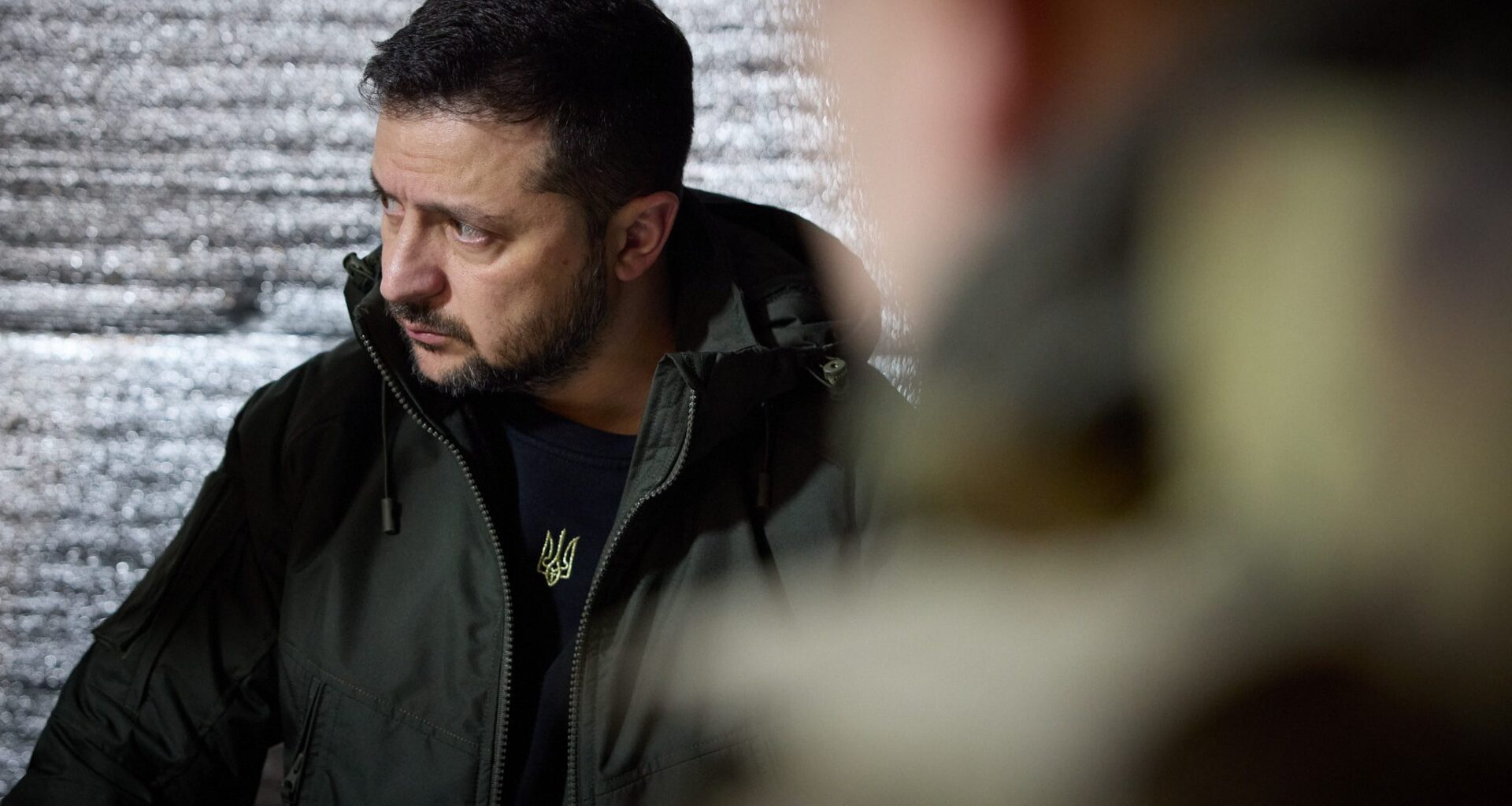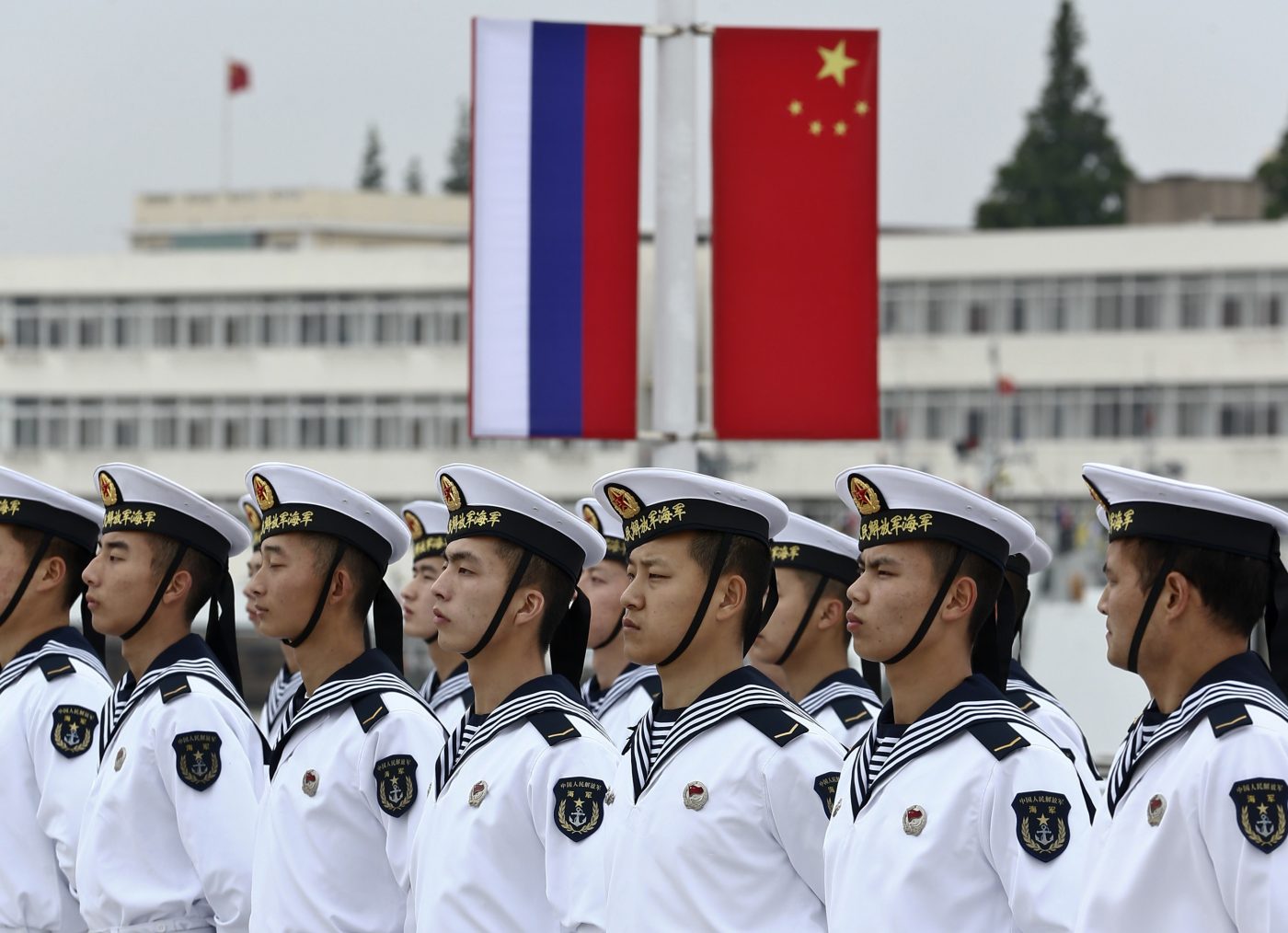Every Ukrainian president for 15 years has tried to extend their executive power, but wartime uncertainty and a crop of inexperienced lawmakers, many of whom were elected on Zelenskyy’s coattails, have emboldened him and his advisers to sideline parliament and push for more control.
On July 17, when Ukraine’s Rada approved the replacement of Prime Minister Denys Shmyhal with First Deputy Prime Minister Yuliia Svyrydenko in a shake-up of ministerial positions, even members of the ruling Servant of the People party complained they hadn’t been consulted about the abrupt and unexpected changes.
The reshuffle — and the parliamentary vote that followed — signaled not only a tightening of presidential control, but also the growing influence of the president’s 53-year-old chief of staff, Andriy Yermak, who is widely seen as one of the country’s most powerful figures.
“We were simply told what to do,” one MP said of the vote. “It’s like we’re in the next season of [Zelenskyy’s hit TV series] Servant of the People, only now the script is written by Yermak.”
Yermak was also said to have been involved in the controversial and since-reversed July 22 parliamentary decision to bring anti-corruption agencies under tighter presidential control.
A lawyer by training, Yermak began his career in the 1990s as the founder of an international legal consultancy before pivoting into the entertainment industry. It was there, in the early 2010s, that he met Zelenskyy — then a comedian and television producer. Their relationship blossomed into a close personal and political alliance.
Yermak joined Zelenskyy’s presidential campaign and was initially appointed as a presidential adviser on foreign affairs after his April 2019 victory. Three months later, he traveled to Washington to lay the groundwork for Zelenskyy’s first White House visit and the next year struck a prisoner swap deal with Moscow, securing the release of 35 Ukrainians, a major early win for the president.
But his negotiating style was controversial. Critics in Kyiv and Washington felt Yermak was too accommodating to Kremlin demands, including entertaining the idea of direct dialog with Russian proxy regimes in Donetsk and Luhansk — an unpopular idea with many Ukrainians.
In early 2020, he was appointed Head of the Presidential Office — a position with no constitutional authority but immense practical power — and he began reshaping the political landscape. “He doesn’t just advise Zelenskyy,” said one former minister. “He tells him what to do, and often presents it as the only viable option.”
Yermak’s reach has expanded into nearly every branch of government. He shapes Ukraine’s foreign policy, screens international contacts, and often represents the president in sensitive talks. Internally, he controls appointments, promotions, and dismissals at ministerial and regional levels and has a track record of promoting loyalists and sidelining others.
Svyrydenko, the new prime minister, for example, worked under Yermak in the Presidential Office and was involved in negotiations with the US, while Oleksiy Kuleba, appointed as vice-premier for reconstruction, also served under him before joining the government.
Western diplomats acknowledge Yermak’s centrality in decision-making and express concerns about this. But some, including Ukrainian observers, also say it’s natural to promote decisive individuals to positions of power in wartime; the country is, after all, involved in a life-or-death struggle.
Get the Latest
Sign up to receive regular emails and stay informed about CEPA’s work.
Yet transparency and institutional independence are critical for any young democracy.
Svyrydenko was long rumored as Yermak’s preferred choice for the premiership. A former presidential aide who served briefly in the Office of the President (2020–2021), her star rose following her role in the complex and politically sensitive agreement with the Trump administration over access to Ukraine’s natural resources.
She is often presented as a symbol — as a young, bespectacled millennial woman in a high government post. Her appointment was widely cast as a nod to generational and sex representation, much as Rustem Umerov’s earlier promotion to defense minister was framed as a milestone for diversity as the first Muslim in the role.
Yet such portrayals risk masking deeper questions of accountability and consolidation of power.
This became clear when the government decided to effectively strip the National Anti-Corruption Bureau (NABU) and the Specialized Anti-Corruption Prosecutor’s Office (SAPO) of their independence and instead subordinate them to the Prosecutor General’s Office — a structure widely viewed as being under presidential control.
NABU and SAPO are far from perfect, and critics often note that high-profile corruption cases languish for years, yet these institutions, shaped in close coordination with the EU and US, represent rare examples of mostly independent Western-style watchdogs. Their hobbling threatens not only Ukraine’s credibility, but also its EU accession prospects (the bloc has since threatened to withhold $1.7bn in aid for Ukrainian failures in “good governance).
The decision also struck at the symbolic heart of Ukraine’s 2013–2014 Revolution of Dignity, which sought to end impunity and bring justice to a post-Soviet political system captured by oligarchs and cronies. Undermining anti-corruption agencies risks eroding the legitimacy upon which Ukraine’s international partnerships rest. And there is huge domestic pressure for cleaner government — according to a recent KIIS poll, 92% of Ukrainians view corruption as a serious or very serious problem — nearly as many as those who see the war itself (95%) as the most critical national challenge.
Zelenskyy’s U-turn came after a combination of international pressure and street protests, which drew on widening public frustration over corruption, inequality, and leadership. Surveys show that people are increasingly angry about injustices, for example, in the military draft system, in which the wealthy can pay to avoid being sent to the front line.
While Yermak might be a useful lightning rod for criticism of Zelenskyy’s decisions, both the July reshuffle and the botched anti-corruption reforms revived a debate about the power concentrated in the Office of the President.
Since independence, Ukraine’s hybrid political system has struggled to strike a balance between presidential authority and parliamentary accountability, and proposed reforms have been repeatedly shelved.
The Office of the President now controls key judicial appointments, law enforcement command chains, and prosecutorial power. This causes concerns, because Ukraine has been down this road before — most infamously during the Viktor Yanukovych presidency, when unchecked influence over the Prosecutor General’s Office led to politically motivated arrests, expropriations, and the violent suppression of protest.
While no one is accusing Zelenskyy of following the same path, the concentration of unchecked executive power remains a systemic vulnerability — especially in wartime, when institutional resistance is muted and public oversight reduced.
Kateryna Odarchenko is a political consultant, a partner of the SIC Group Ukraine, and president of the PolitA Institute for Democracy and Development. A specialist practicing in the field of political communication and projects, she has practical experience in the implementation of all-Ukrainian political campaigns and party-building projects
Europe’s Edge is CEPA’s online journal covering critical topics on the foreign policy docket across Europe and North America. All opinions expressed on Europe’s Edge are those of the author alone and may not represent those of the institutions they represent or the Center for European Policy Analysis. CEPA maintains a strict intellectual independence policy across all its projects and publications.
Europe’s Edge
CEPA’s online journal covering critical topics on the foreign policy docket across Europe and North America.

